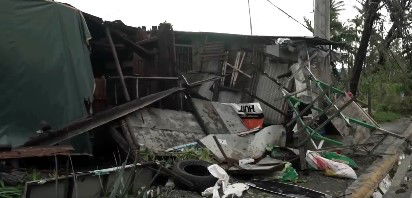Typhoon Fung-wong Makes Landfall in Philippines, Over 9 Lakh Evacuated

IN NEWS:
Typhoon Fung-wong Makes Landfall in Philippines, Over 9 Lakh Evacuated
- Event Overview:
Typhoon Fung-wong made landfall in the Philippines, forcing the evacuation of over nine lakh people and resulting in two fatalities. - Impact and Location:
- The typhoon struck Aurora province in Luzon with sustained winds of 185 km/h and gusts up to 230 km/h.
- It subsequently weakened while moving across La Union in western Luzon.
- Emergency Measures and Damage:
- The Philippine meteorological service issued warnings of destructive winds, life-threatening storm surges, and heavy rainfall likely to cause floods and landslides.
- Around 300 flights were cancelled, and several airports were closed due to severe weather conditions.
- Rescue and relief operations are ongoing as the storm tracks northward over Luzon.
- Context:
- Typhoon Fung-wong (known locally as Uwan) follows Typhoon Kalmaegi, which earlier caused over 200 deaths and led to a state of calamity across the Philippines.
- The back-to-back storms highlight the increasing vulnerability of the Philippines to severe tropical cyclones.
STATIC PART
- About Typhoons:
- Typhoons are tropical cyclones that form over the western Pacific Ocean.
- Equivalent terms include hurricanes (Atlantic) and cyclones (Indian Ocean).
- They are classified based on wind speed and pressure intensity as per the Saffir–Simpson scale.
- Philippines and Typhoon Vulnerability:
- The Philippines is among the most disaster-prone countries in the world.
- Located along the Pacific “Ring of Fire” and the typhoon belt, it experiences an average of 20 tropical cyclones annually.
- Major past typhoons include Haiyan (Yolanda, 2013), Goni (Rolly, 2020), and Rai (Odette, 2021).
- Disaster Management in the Philippines:
- Coordinated by the National Disaster Risk Reduction and Management Council (NDRRMC).
- Focuses on early warning systems, community preparedness, and evacuation planning.
Updated – 10 Nov 2025 ; 08:47 AM | News Source: All India Radio